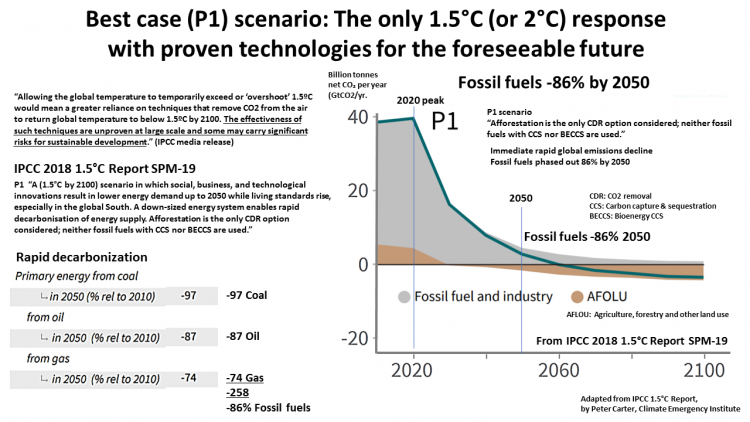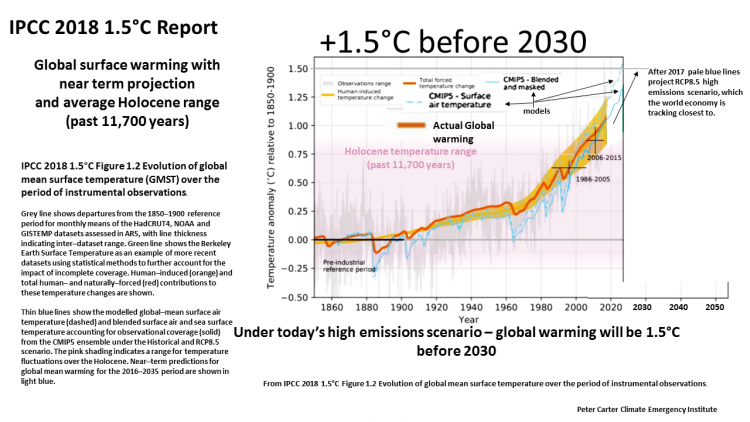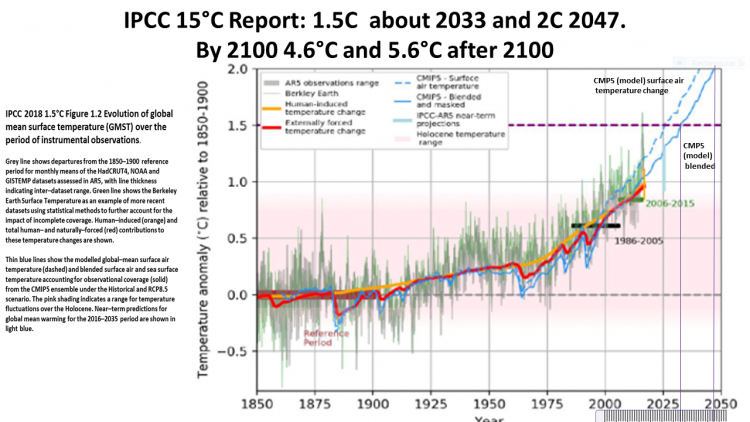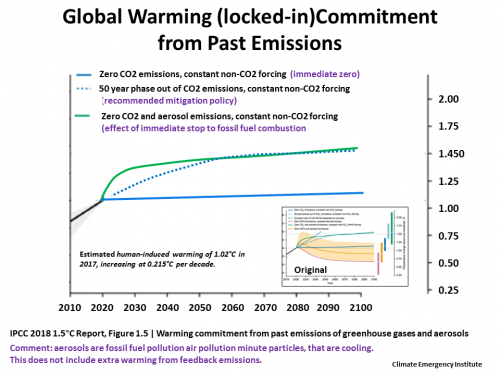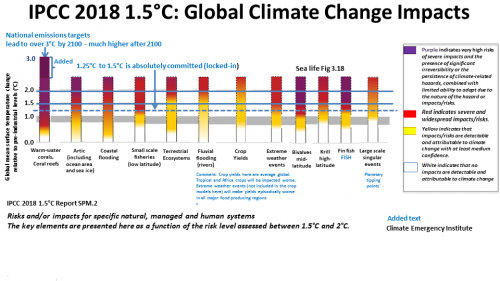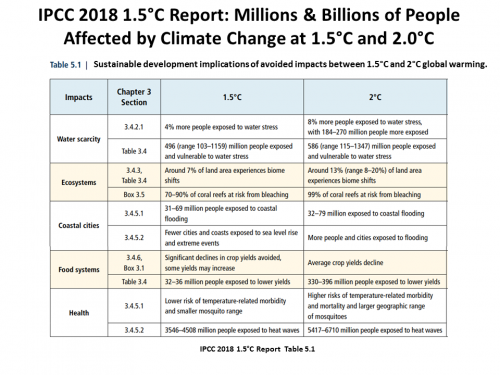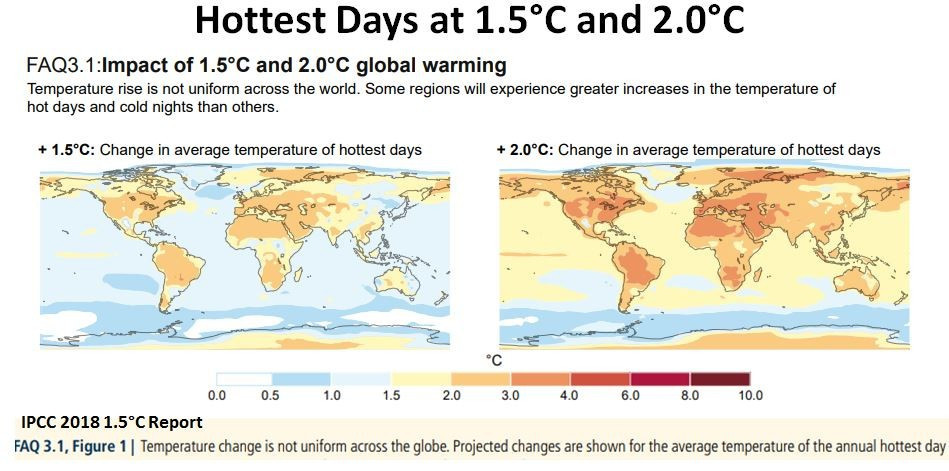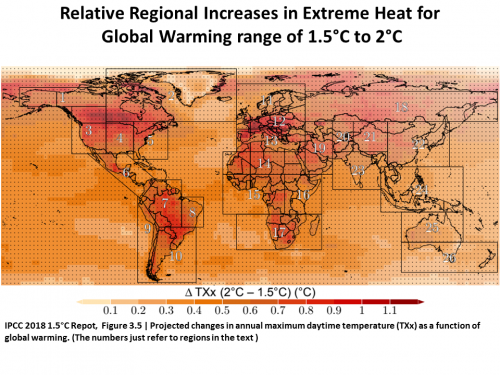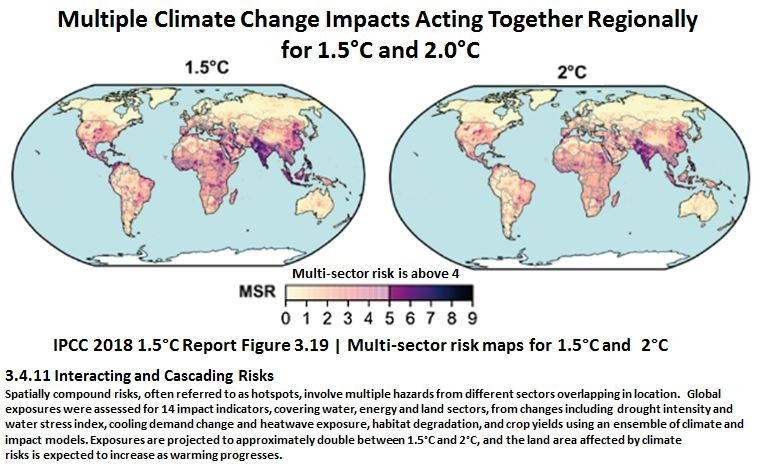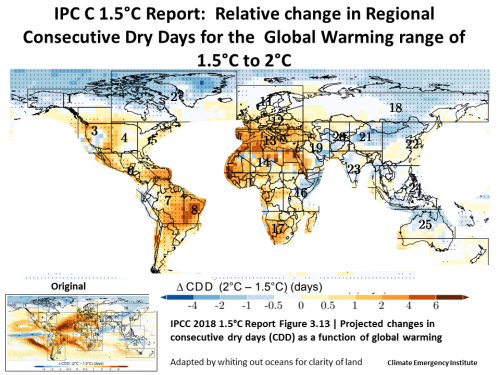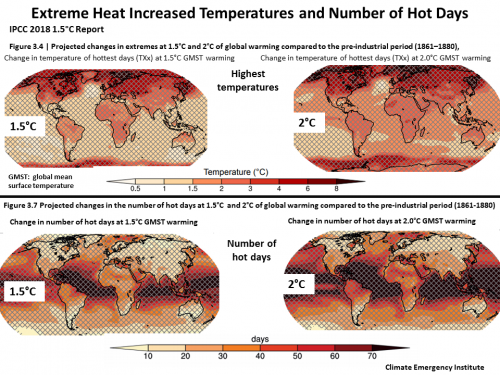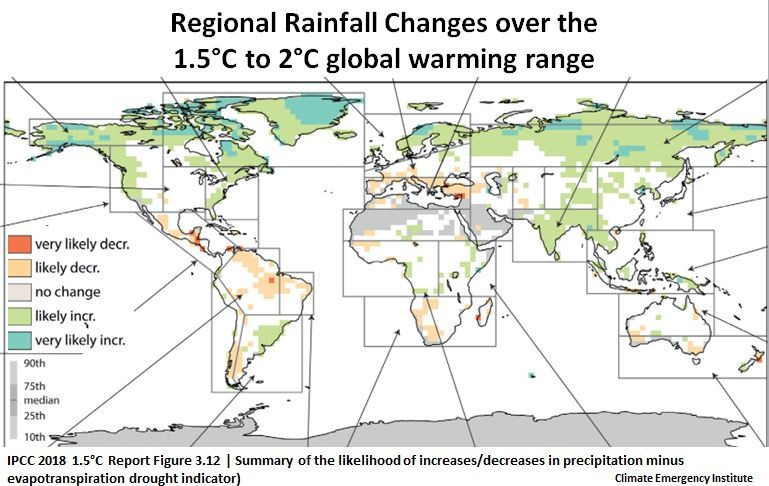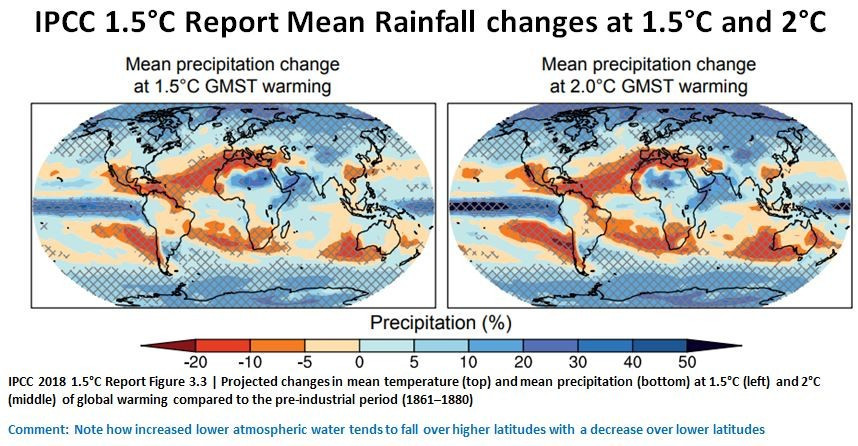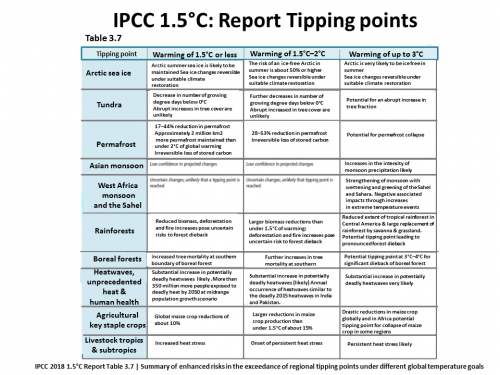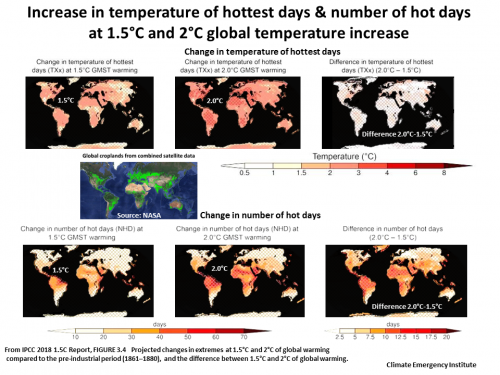Committed Global Climate Change Planetary Emergency
Climate Emergency Institute
The Health and Human Rights Approach to Greenhouse Gas Pollution
CLIMATE EMERGENCY INSTITUTE
Solution ZERO CARBON
Site maintained by Peter Carter
Double click here to edit this text.
Oct 2018 IPCC 1.5C Report
Quick read of the IPCC 1.5C report
Brief 1.5C as IPCC FAQ
IPCC Oct. 2018 1.5C Report
VIDEO Michael Mann on 1.5C Report
It's actually worse
IPCC 2018 Special Report 1.5°C
IPCC 2018 1.5C Report, Box 3.6
IPCC 1.5°C Report: Economic Damages
from Climate Change
Global economic damages of climate change are projected to be smaller under warming of 1.5°C than 2°C in 2100 (Warren et al., 2018c).
The mean net present value of the costs of damages from warming in 2100 for 1.5°C and. 2°C (including costs associated with climate change-induced market and non-market impacts, impacts due to sea level rise, and impacts associated with large-scale discontinuities) are $54 and $69 trillion, respectively, relative to 1961–1990.
Values of the social cost of carbon vary when tipping points are included. The social cost of carbon in the default setting of the Dynamic Integrated Climate-Economy (DICE) model increases from $15 tCO2 to $116 when large-scale singularities or ‘tipping elements’ are incorporated . These calculations excluded the large health co-benefits that accrue when greenhouse gas emissions are reduced
The economic damages of climate change in the USA are projected to be large , the USA stands to lose -0.1 to 1.7% of the Gross Domestic Product (GDP) at 1.5°C warming.
PDF of IPCC 1.5C Table 3.2 Global and regional climate changes and hazards
PDF of IPCC 1.5C Report on food security
PDF of 3 page IPCC 1.5C Report essentials
- Immediate (2020) rapid decline in global emissions
- 50% drop in global emissions by 2030
- 86% drop in fossil fuels by 2050
The IPCC 1.5C Report report shows with high certainty 1.5°C is globally disastrous
but 2°C is total planetary catastrophe
1.5C Report
